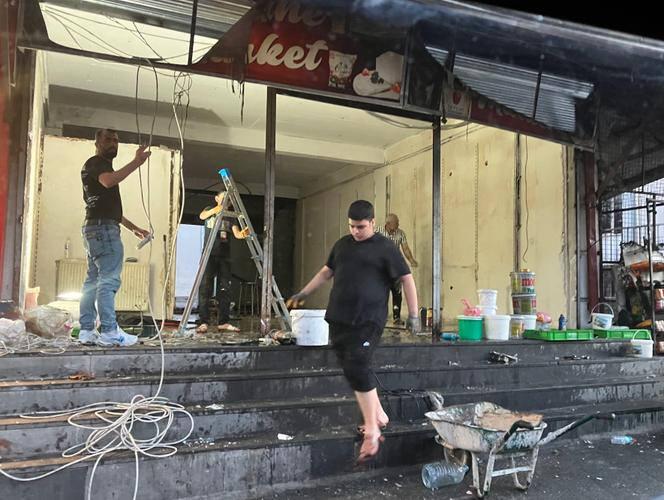


Plastic tarpaulins were installed over vandalized or looted stores along the streets of Kayseri, in central Turkey, and lowered shutters evoked a dead city. For the past 10 days or so, after three nights of unprecedented rioting saw Kayseri see an outpouring of hatred and racist attacks against Syrian refugees, businesses have slowly reopened their doors. Residents finally left their homes, albeit fearfully.
Half a dozen neighborhoods were affected in the country, some very far apart. Nearly 400 shops, cars and homes were targeted by 1,000 to 2,000 rioters – or perhaps more, the count is not clear. Molotov cocktails, stones thrown, assaults and beatings: The anger of some of the Anatolian city's residents with a population of just over a million – known as a conservative and nationalist bastion and one of the country's former economic engines – turned into a storm that almost swept everything away in its path. It took three nights of unprecedented violence before the authorities decided to intervene, leaving part of the city in a state of shock and the Syrian population in an abyss of uncertainty.
The trouble began late on Sunday, June 30, in the market square of the Danismentgazi district in the south of Kayseri. Someone reportedly saw a Syrian man enter the public toilets and attempt to molest a young girl. Soon, a group of people gathered in front of the entrance to the toilets. Images were taken from a phone held above the door and broadcast on social media. The police intervened and arrested the alleged assailant.
This neighborhood is known for being one of the preferred locations for Syrians fleeing the Damascus regime and the civil war underway since 2011. They make up nearly a quarter of Danismentgazi's population. A video recording of the moment was short and confusing. It showed an individual wrapping his arms around a child, with comments claiming that he was a Syrian attempting to sexually assault a little girl. Nowhere was it mentioned that the young man was known by local Syrian families to be mentally disabled. Nor was there mention of the fact that the seven-year-old girl is his Syrian cousin.
It was 8 pm when Abdulkerim (all names have been changed for security reasons) arrived in the square to buy bread from one of the stalls open late at night. Aged 40, a father and originally from Aleppo, the man is a respected shopkeeper who has lived here for almost 11 years, in a neighborhood he knows well, with "its ups and downs," as he put it.
You have 75.63% of this article left to read. The rest is for subscribers only.
